ESM780: EC Curriculum, Pedagogy and Assessment Presentation
VerifiedAdded on 2022/08/25
|12
|706
|11
Presentation
AI Summary
This presentation, created for the ESM780 course, delves into curriculum, pedagogy, and assessment within the context of early childhood education. It centers on developing two specific learning outcomes derived from the Early Years Learning Framework (EYLF) and its descriptors. The presentation outlines two practical activities designed to help students achieve these learning outcomes. Additionally, it discusses two key strategies for assessing student learning. The presentation highlights the importance of holistic and responsive teaching approaches, emphasizing the significance of planning learning environments and allowing children to develop hypotheses. The assessment strategies discussed include ethical assessment and forward measuring assessment, both aimed at accurately gauging children's potential and capabilities. The presentation concludes by emphasizing the role of educators in planning effective learning processes and selecting appropriate assessment methods to foster children's creative abilities and overall development. References are provided using APA conventions.
1 out of 12
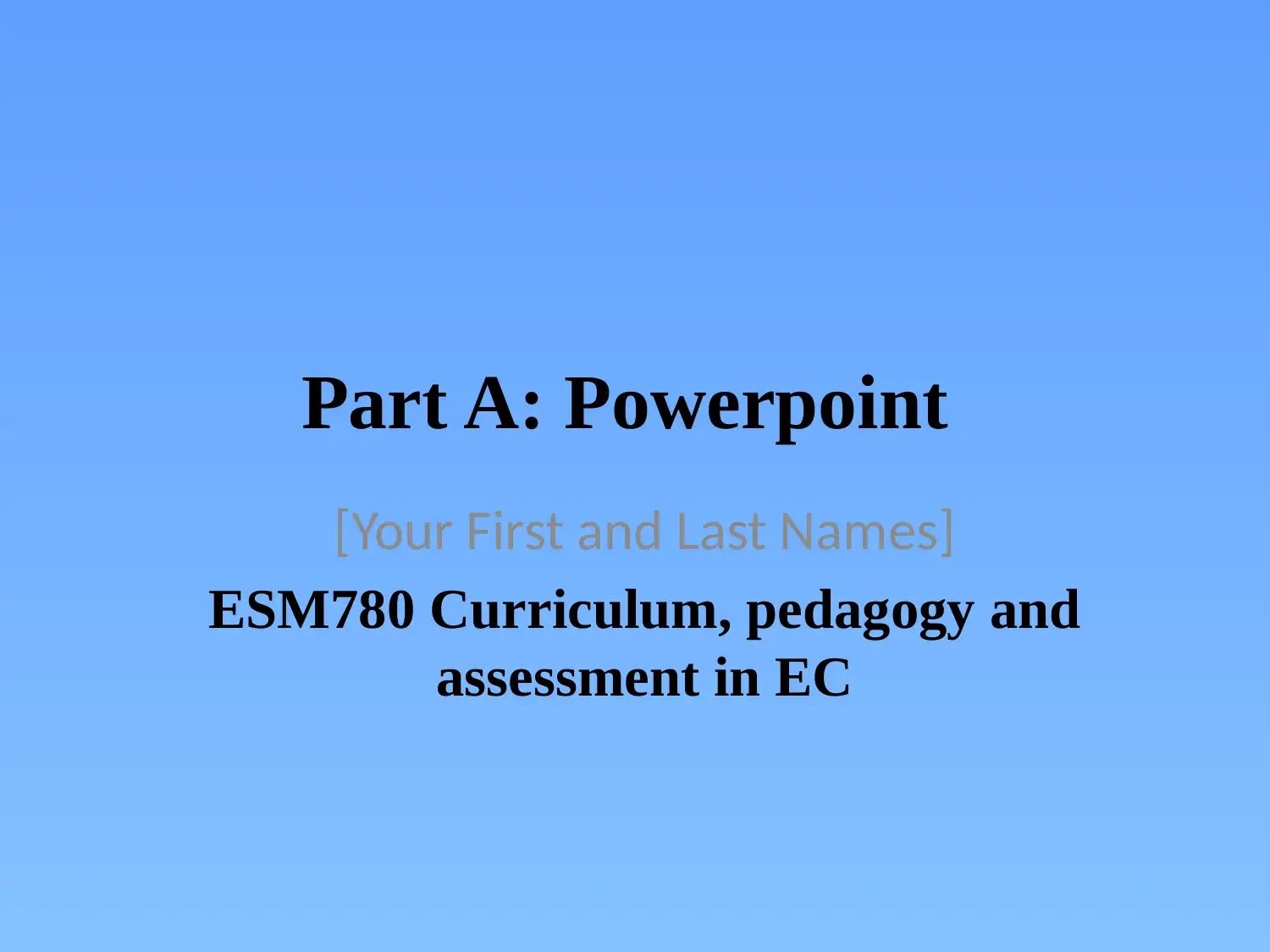
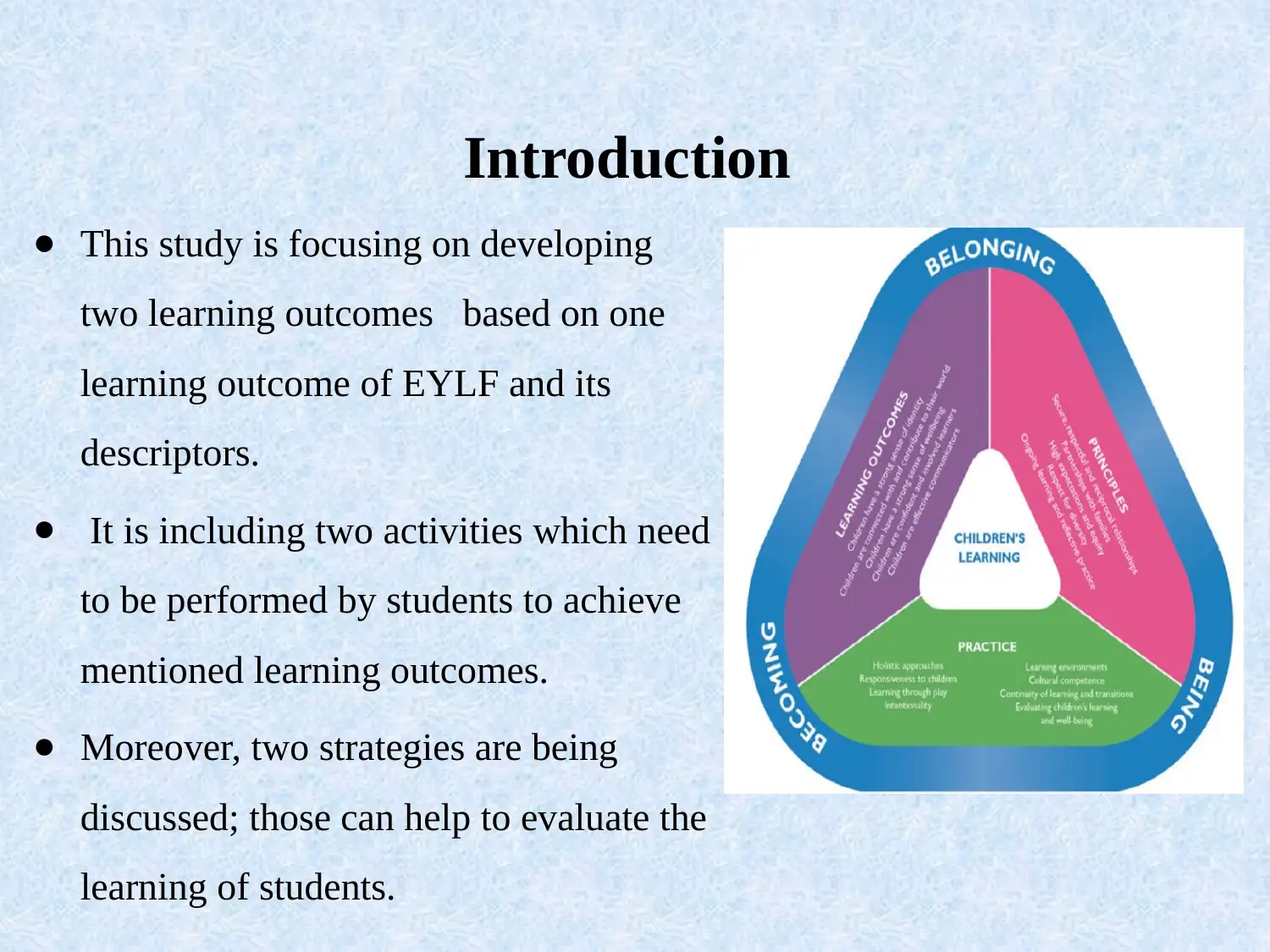
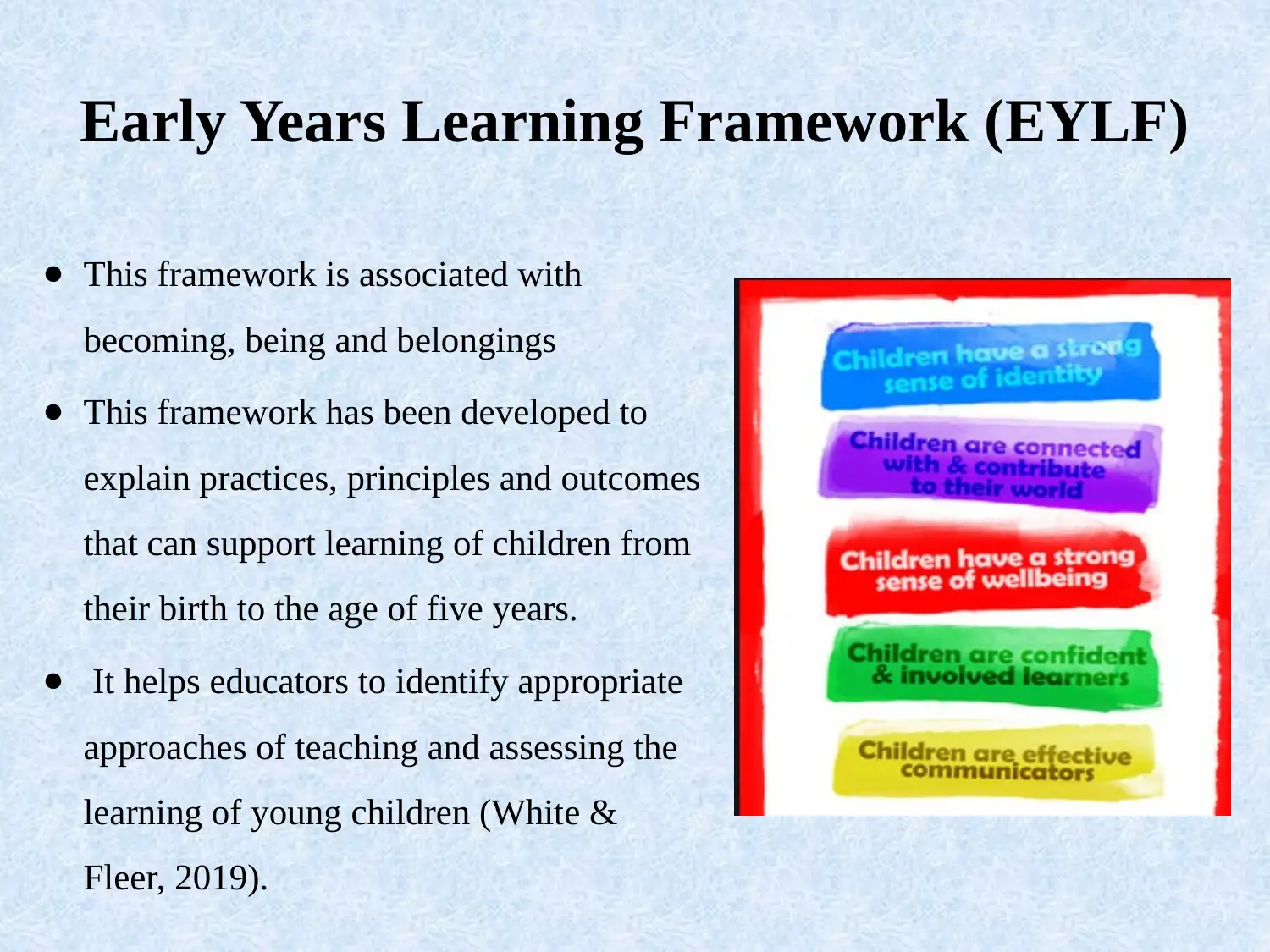

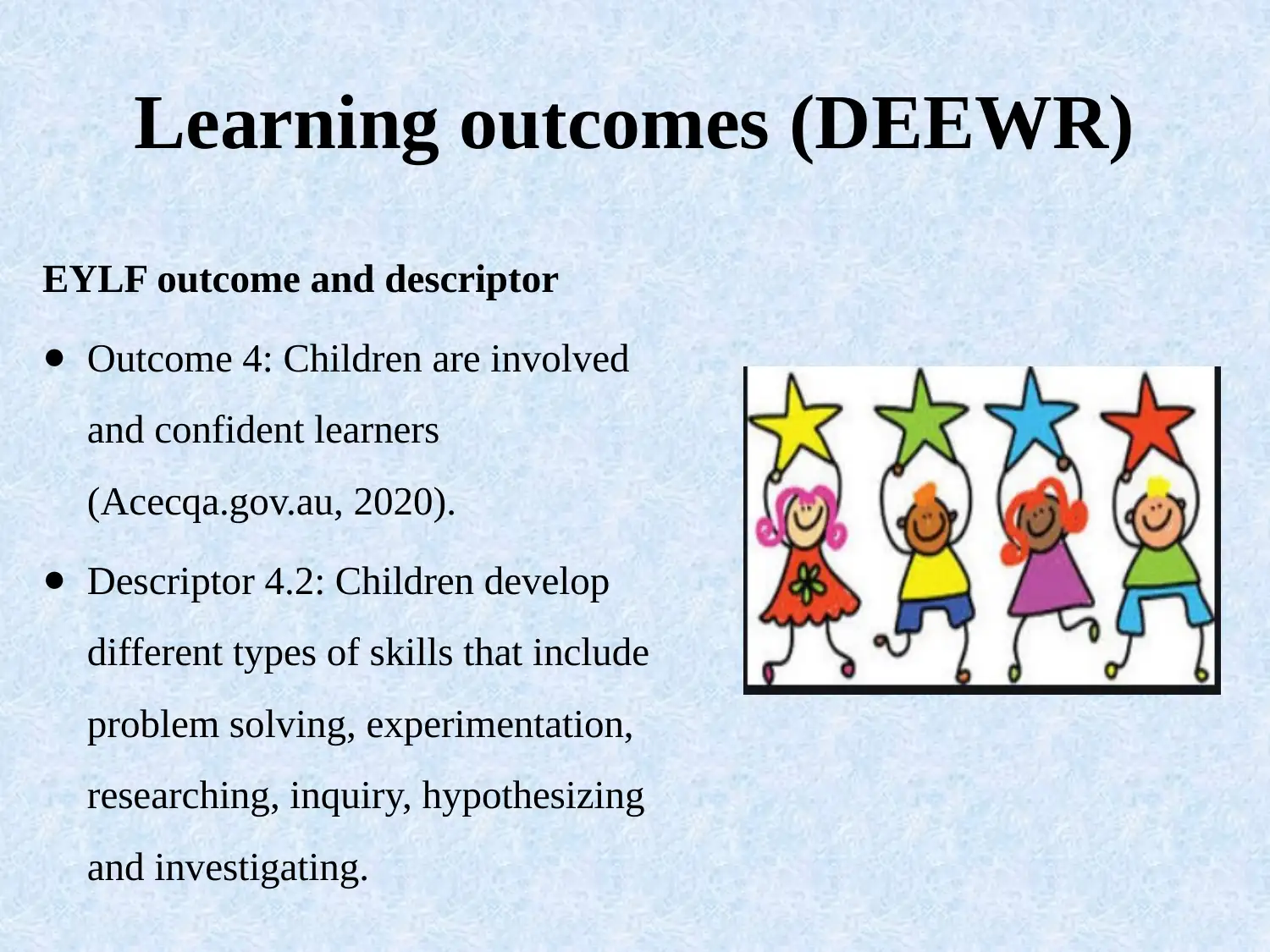
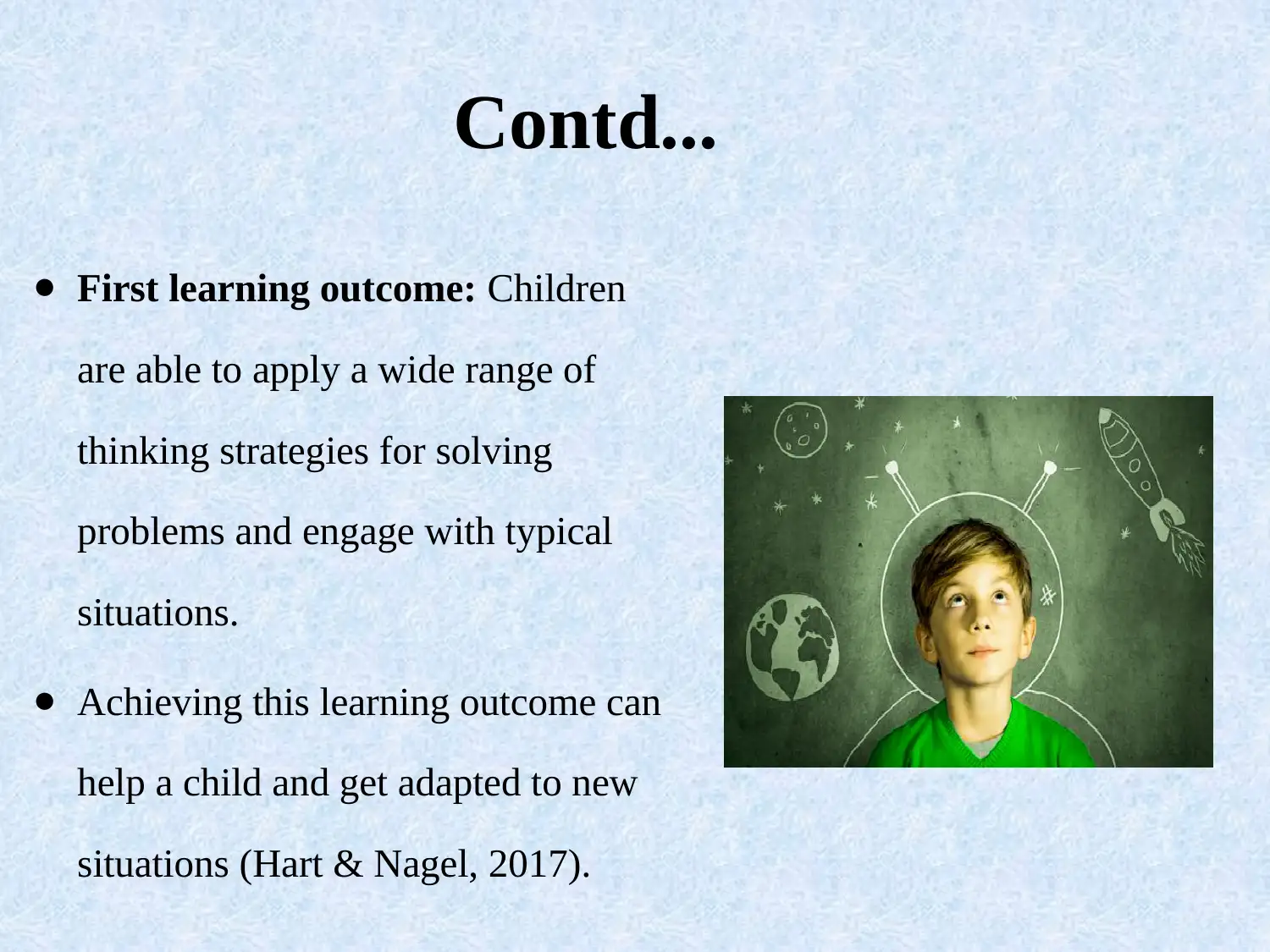
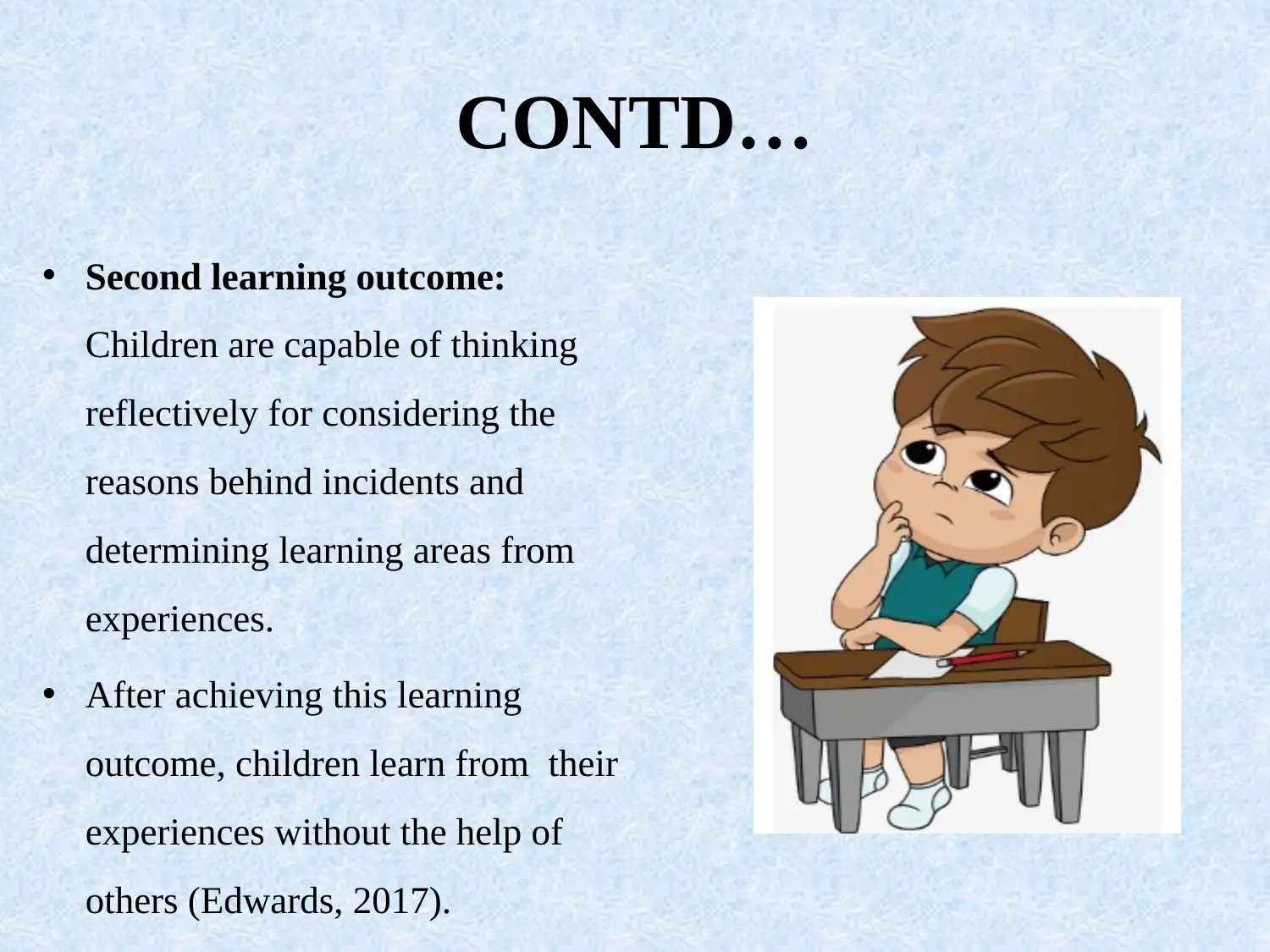
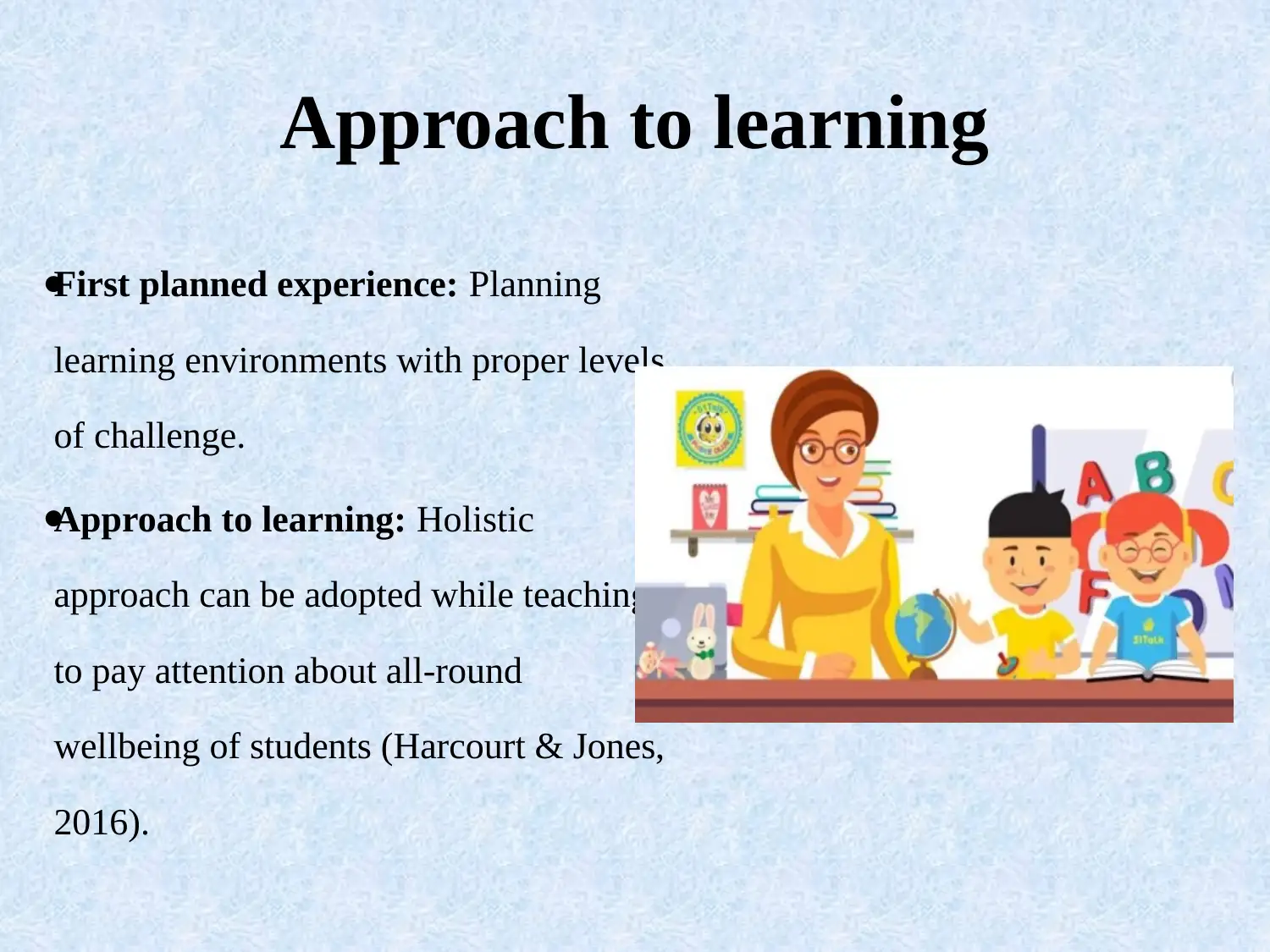
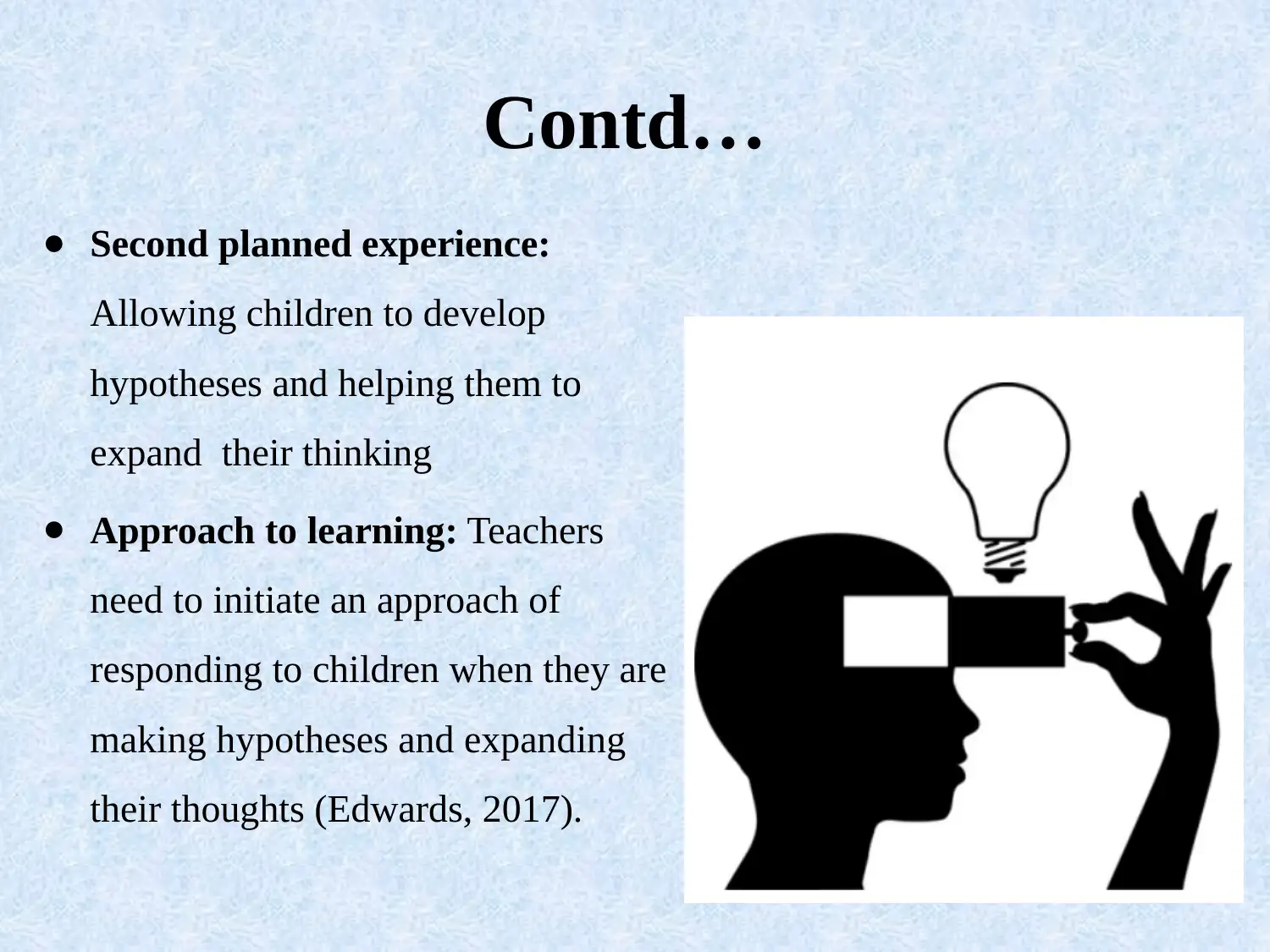
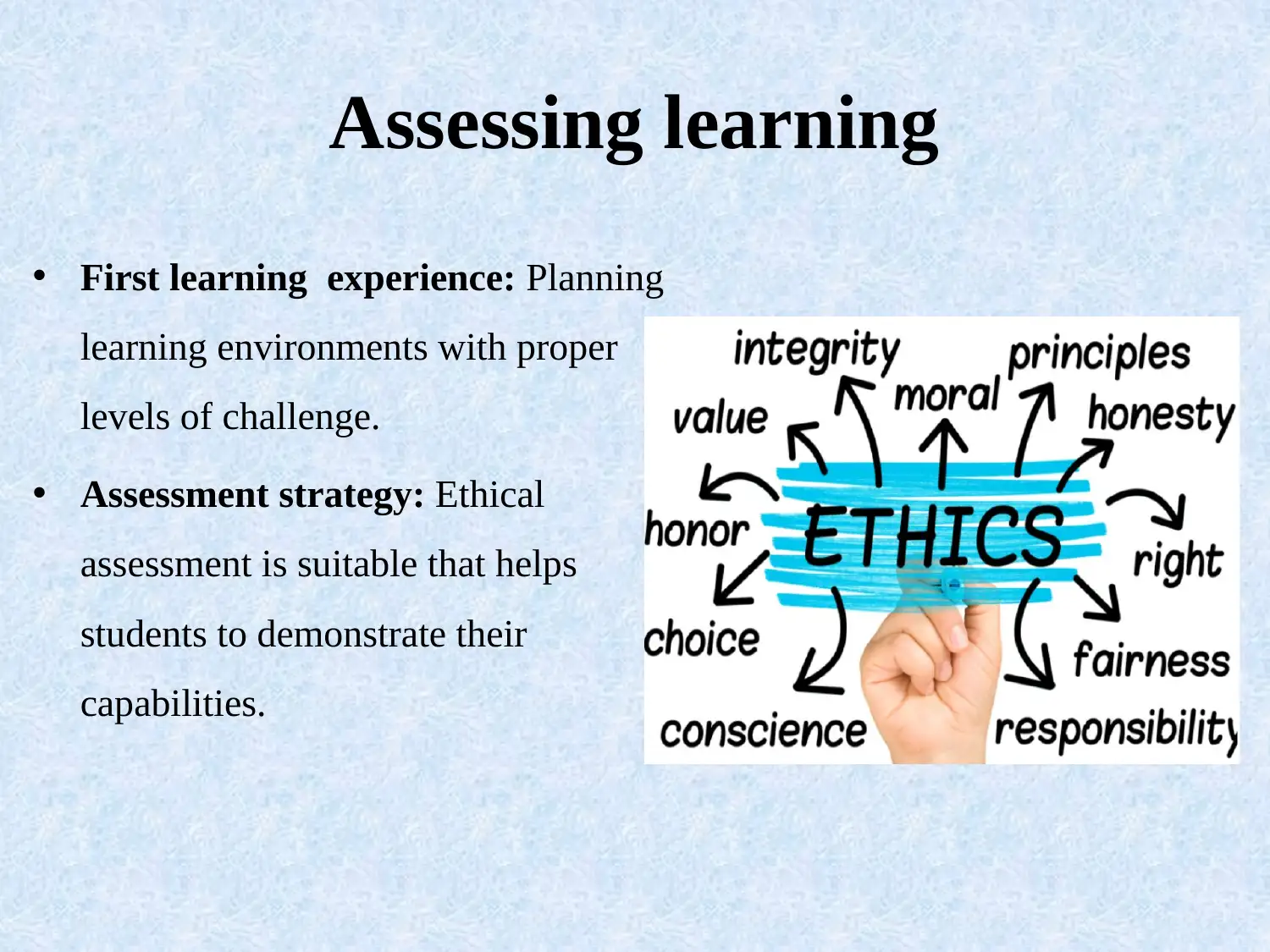
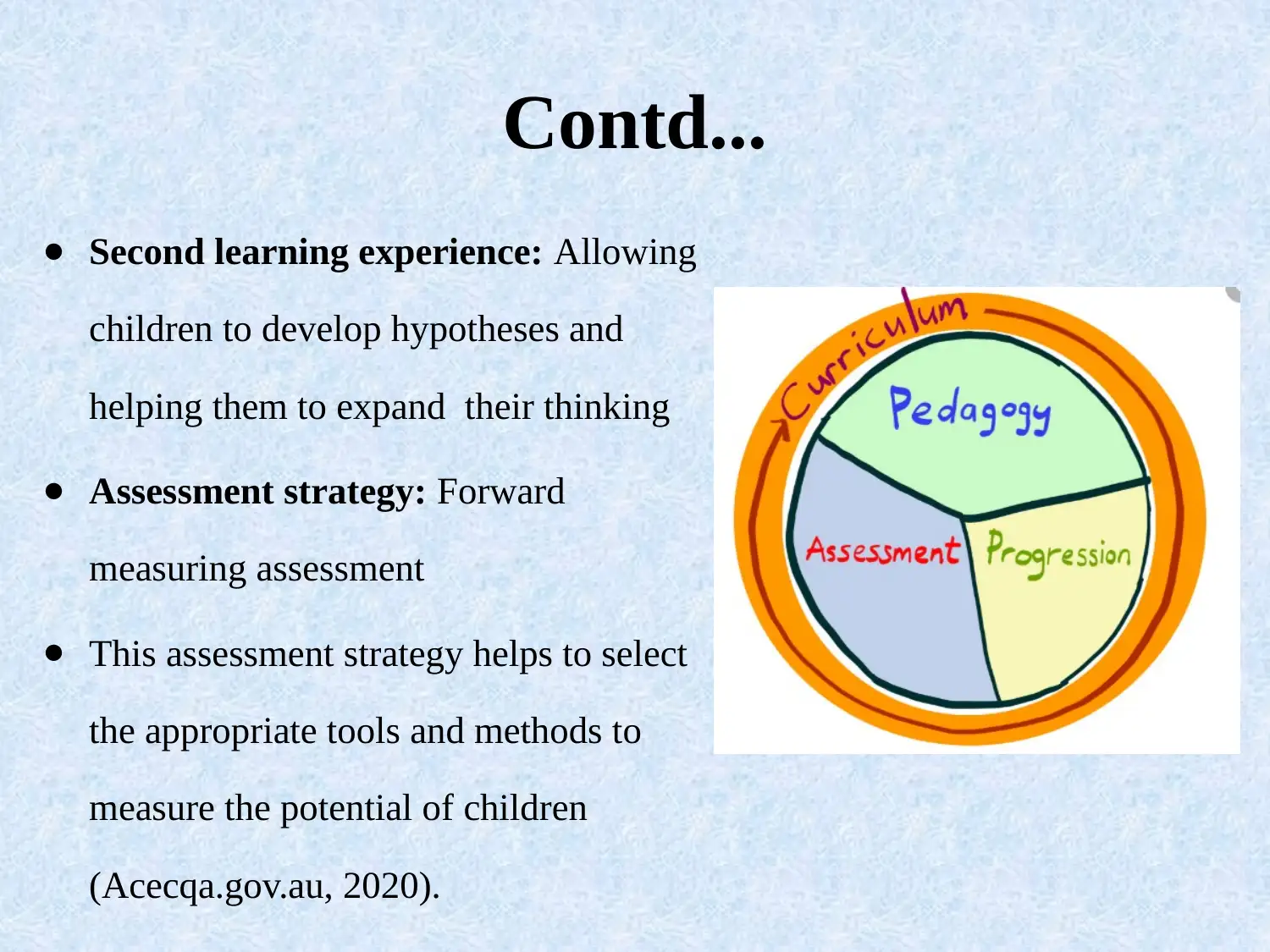
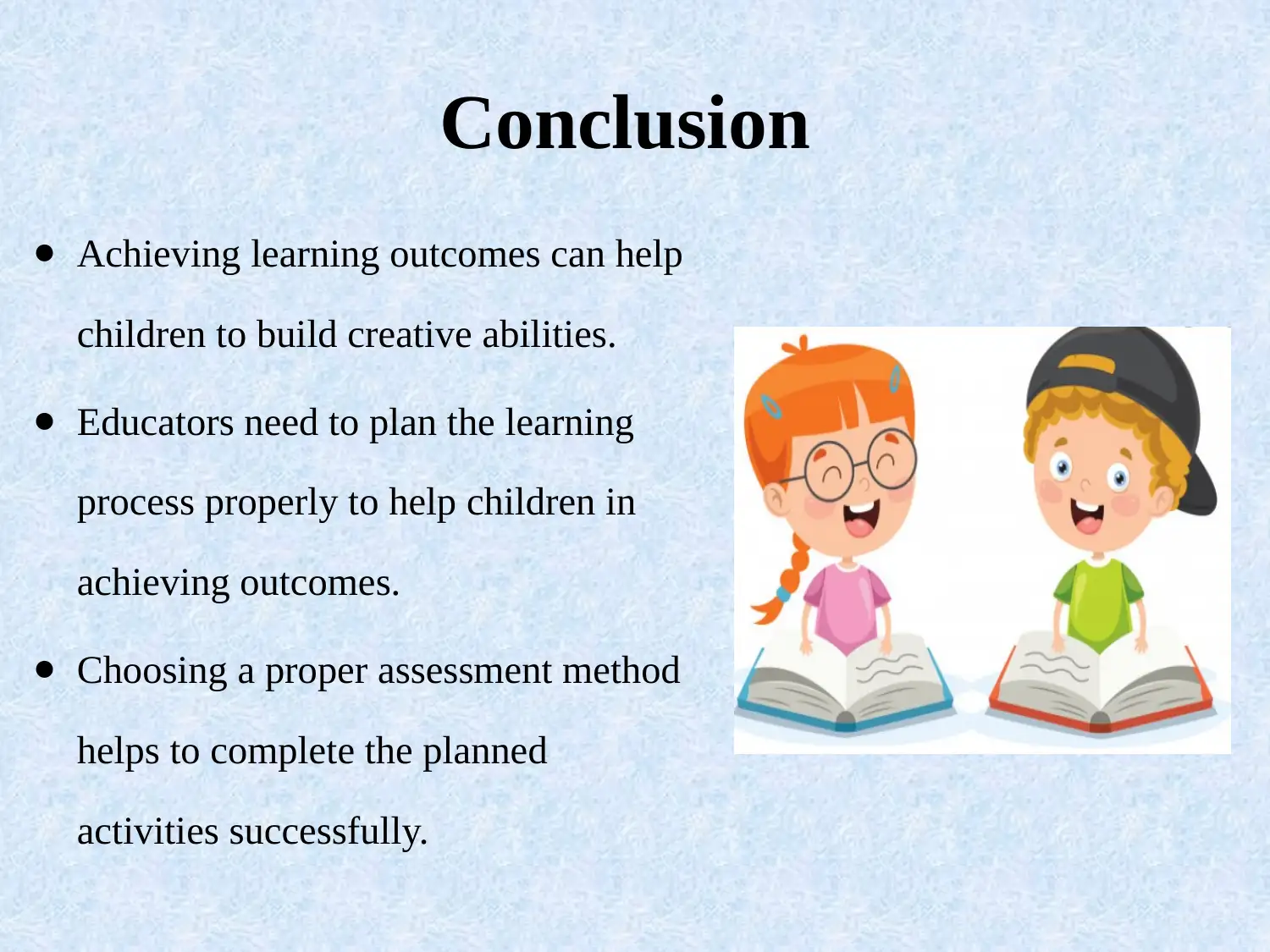
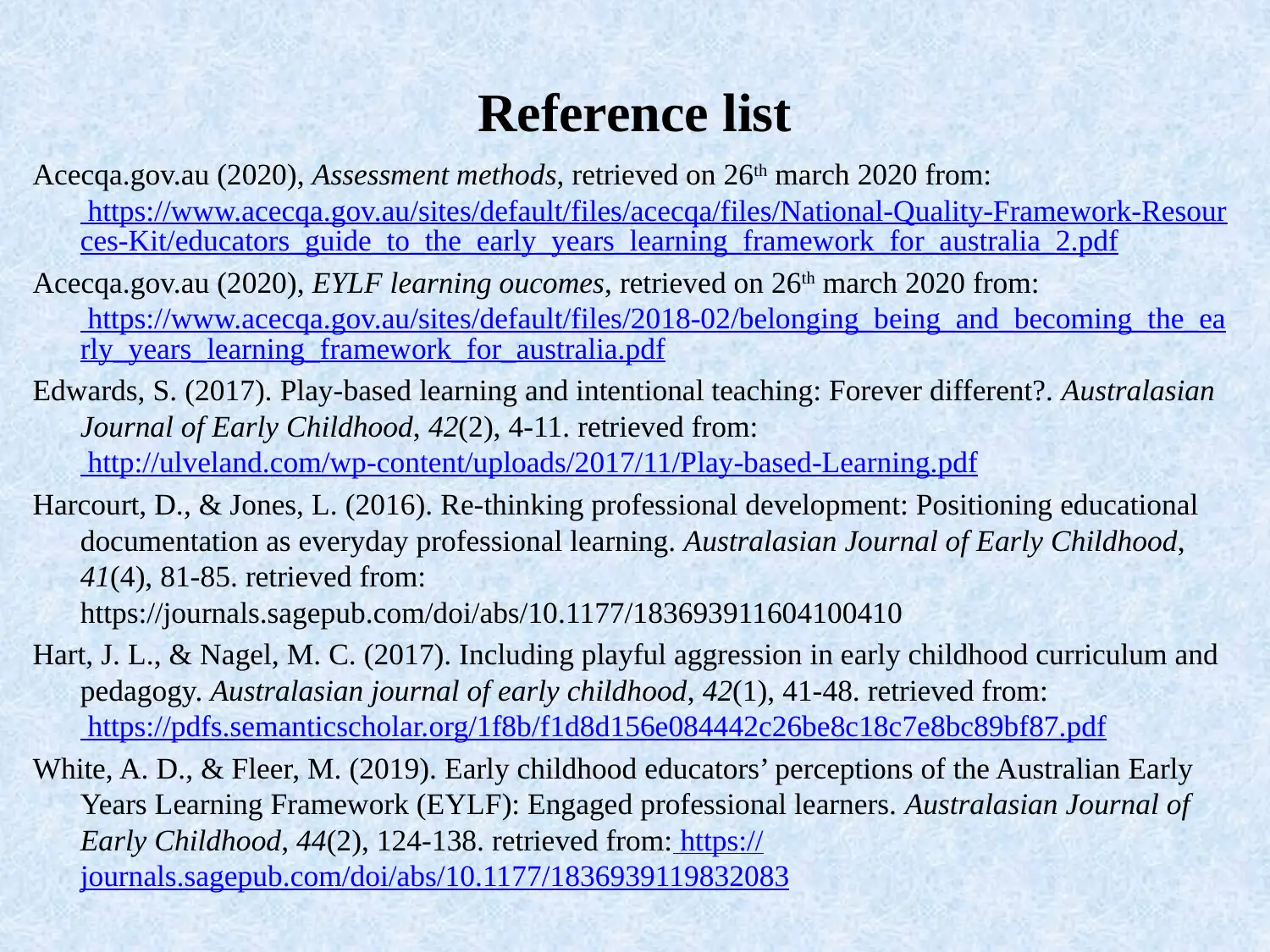






![[object Object]](/_next/static/media/star-bottom.7253800d.svg)